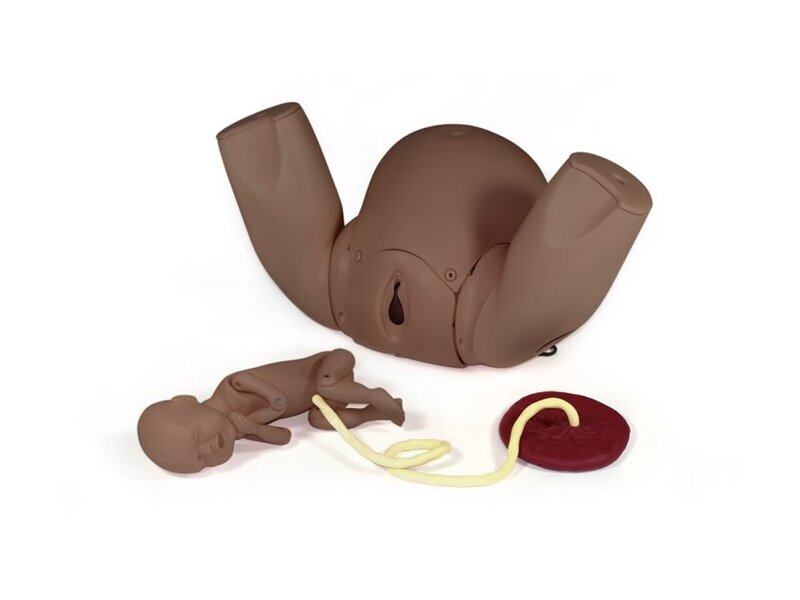
PROMPT Flex Birthing DK Simulator - Standard
The PROMPT Flex Standard is an anatomically correct birthing simulator with a modular design, allowing for multiple training scenarios. It is an ideal training solution for all skills relating to both routine and non-routine deliveries, and can be used for hybrid simulation as well as stand-alone bench top training. Included with this task trainer, is the Enhanced PROMPT Flex Standard Baby. The baby represents a full-term infant, which works with the PROMPT Flex Birthing Mother (LIM-80120) to simulate normal and difficult birthing scenarios. Improved shoulder and hip joints further enhance the realism in difficult birthing situations such as deeply impacted head and shoulder dystocia. To further extend use, additional modules for Post-Partum Hemorrhage (LIM-80201), Cesarean-section (LIM-80203) and Cervical Dilation and Effacement (LIM-80202) are available. This product is available in a light skin-tone (LIM-80100).
- Este producto no está disponible para su compra en línea
- Solicitar más información
Inicia sesión para agregar este elemento a tu lista de favoritos.
Descripción general
- Suitable for use with Simulated/Standardized Patient
- Realistic pelvic floor
- Articulating thighs for McRobert’s procedure
- Stretchable perineum
- Soft, flexible birthing canal
- Additional modules available to extend training:
- Post Partum Hemorrhage management
- C-section
- Cervical dilation and effacement
- Optional lower legs available for all fours position
- Skin washable with soap and water
- Latex free
- Birth canal and cervix
- Ischial spines and pubic bone
- Gynecoid pelvis
- Articulating thighs
- Fully articulated baby with clavicles, fontanelles, flexible head and detachable umbilical cord and placenta
- Training and practice in the following types of birth:
- Normal
- Vaginal breech
- Shoulder dystocia
- Vaginal assisted (forceps and vacuum devices)
- Third stage of labor
- Cord prolapse
- Urinary catheter placement
- IM injection
- Communication and teamwork skills
Draycott, T. J., J. F. Crofts, et al. (2008). "Improving Neonatal Outcome Through Practical Shoulder Dystocia Training." Obstet Gynecol 112(1): 14-20.
Management of Shoulder Dystocia: Skill Retention 6 and 12 Months After Training.
Crofts, J. F., C. Bartlett, et al. (2007). "Management of Shoulder Dystocia: Skill Retention 6 and 12 Months After Training." Obstet Gynecol 110(5): 1069-1074.
Shoulder dystocia training using a new birth training mannequin.
Crofts, J. F. A., Georgios; Read, Mike; Sibanda, Thabani; Draycott, Timothy J. (2005). "Shoulder dystocia training using a new birth training mannequin." BJOG: An International Journal of Obstetrics & Gynaecology 112(7): 997-999.
